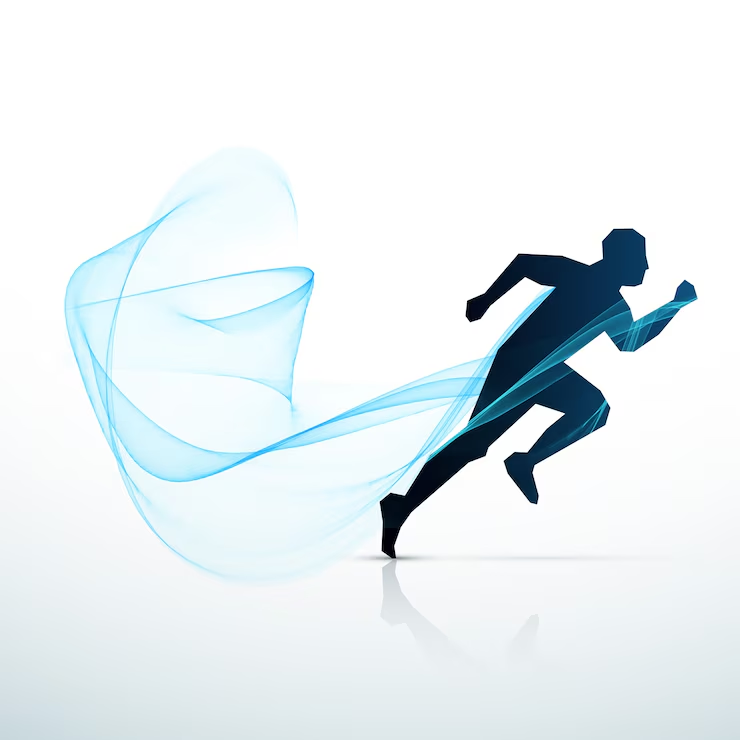Coffee and Athletic Performance – Myth or Reality?
Coffee is one of the most popular beverages worldwide, cherished for its stimulating effects and rich flavor. But when it comes to sports, the question arises: does coffee really enhance athletic performance, or is it just a myth? This article dives deep into the science behind coffee and athletic performance, focusing on how caffeine influences concentration, endurance, and recovery. Whether you’re a casual gym-goer or a competitive athlete, understanding coffee’s role can help you harness its benefits safely and effectively.
How Coffee Enhances Concentration and Focus for Athletes
One of the most immediate and well-documented effects of coffee is its ability to boost mental alertness and concentration. This is primarily due to caffeine, coffee’s active ingredient, which acts as a central nervous system stimulant.
- Caffeine blocks adenosine receptors in the brain, reducing feelings of fatigue and increasing alertness.
- Studies show that moderate caffeine intake (about 3-6 mg per kg of body weight) improves reaction time, vigilance, and cognitive function during exercise [1].
- For athletes, this heightened mental focus translates to better decision-making, faster reflexes, and improved motor coordination during training and competition.
However, it’s important to note individual variability: some people metabolize caffeine faster or are more sensitive to its effects, which can influence concentration differently.

Coffee and Endurance: Boosting Physical Performance
The link between coffee and enhanced endurance performance is supported by a significant body of research. Caffeine increases adrenaline levels, which prepares the body for intense physical activity by:
- Increasing heart rate and blood flow to muscles.
- Mobilizing fatty acids from fat tissues, allowing muscles to use fat as fuel and spare glycogen stores [(https://www.ncbi.nlm.nih.gov/pmc/articles/PMC4462044/)].
- Delaying the onset of fatigue, enabling athletes to sustain prolonged exercise.
A landmark study published in the Journal of Applied Physiology found that caffeine ingestion improved cycling time-trial performance by 4-5% [(https://journals.physiology.org/doi/full/10.1152/japplphysiol.00525.2008)]. Similar benefits have been observed in running, swimming, and team sports.
How to use coffee for endurance?
- Consume coffee or caffeine about 30-60 minutes before exercise to allow caffeine levels to peak in the bloodstream.
- Avoid excessive doses (more than 6 mg/kg) to prevent side effects like jitters or gastrointestinal discomfort.
Coffee and Recovery: What Does Science Say?
While coffee is widely recognized for its pre-exercise benefits, its role in recovery is less clear but still promising.
- Anti-inflammatory and antioxidant properties: Coffee contains polyphenols and antioxidants that may reduce exercise-induced oxidative stress and inflammation [(https://www.ncbi.nlm.nih.gov/pmc/articles/PMC6520897/)].
- Glycogen replenishment: Some studies suggest caffeine combined with carbohydrates post-exercise can enhance muscle glycogen resynthesis, speeding recovery [(https://pubmed.ncbi.nlm.nih.gov/15064352/)].
- Pain reduction: Caffeine may reduce perceived muscle pain and soreness after intense workouts, potentially improving recovery quality [(https://pubmed.ncbi.nlm.nih.gov/19855394/)].
However, caffeine’s diuretic effect is mild and unlikely to cause dehydration if consumed in moderate amounts, so coffee can be safely included in recovery nutrition.
Practical Tips for Athletes Using Coffee to Enhance Performance
- Timing matters: Drink coffee about 30-60 minutes before training or competition for optimal caffeine absorption.
- Dose wisely: Start with low to moderate doses (around 3 mg/kg) to assess tolerance. For a 70 kg athlete, this equals roughly 210 mg of caffeine (about 2 cups of brewed coffee).
- Avoid late-day consumption: Caffeine late in the day can disrupt sleep, which is crucial for recovery.
- Hydrate well: Complement coffee intake with water to maintain hydration.
- Personalize your intake: Monitor how your body reacts and adjust accordingly. Some athletes benefit from caffeine cycling to prevent tolerance.

Coffee and Performance – A Real Ally When Used Wisely
The evidence supports that coffee and athletic performance are indeed connected. Coffee’s caffeine content can enhance concentration, boost endurance, and aid recovery when consumed thoughtfully. However, it’s not a magic bullet – individual responses vary, and excessive intake can backfire.
Athletes should consider coffee as part of a balanced nutrition and training plan, experimenting with timing and dosage to find what works best. Future research may uncover more about coffee’s role in recovery and mental resilience, opening new avenues for optimizing performance.
References
- Ganio, M. S., et al. “Effect of Caffeine on Cognitive Performance.” Nutrients, 2013.
- Spriet, L. L. “Exercise and Sport Performance with Low Doses of Caffeine.” Sports Medicine, 2014.
- Doherty, M., Smith, P. M. “Effects of caffeine ingestion on exercise testing: a meta-analysis.” Journal of Applied Physiology, 2004.
- Grosso, G., et al. “Coffee, caffeine, and health outcomes: an umbrella review.” Annual Review of Nutrition, 2017.
- Pedersen, T. H., et al. “Caffeine ingestion and glycogen resynthesis after exercise.” Journal of Applied Physiology, 2008.
- Motl, R. W., et al. “Caffeine reduces delayed-onset muscle pain.” Medicine and Science in Sports and Exercise, 2006.
